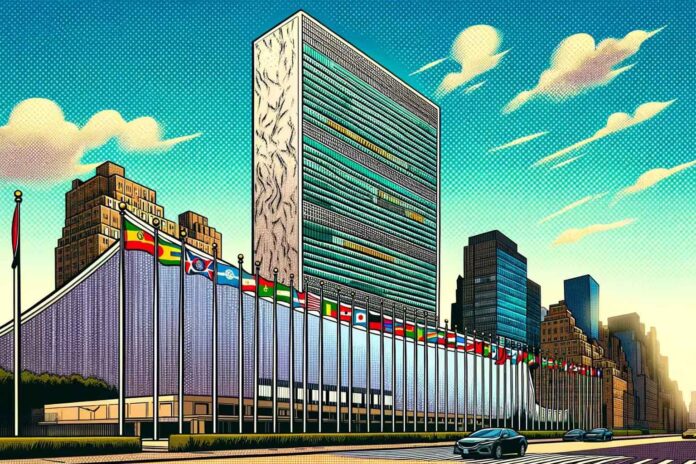New York, USA: In a critical bid to tackle global challenges, the United Nations convened its much-anticipated ‘Summit of the Future’, drawing leaders from across the world. The summit is designed to address some of the most pressing crises humanity faces today, including climate change, geopolitical instability, and financial disparities.
UN Secretary-General António Guterres highlighted that this event is a “once-in-a-generation” opportunity to rebuild global trust and strengthen multilateral cooperation. The summit sets the stage for drafting a comprehensive “Pact for the Future,” aimed at addressing key international issues such as energy transitions, financial justice, conflict prevention, and artificial intelligence regulation.
A roadmap for global reforms
The summit’s agenda includes over 50 commitments covering critical areas like peacekeeping, economic stability, and equitable technological progress. While many diplomats welcomed the focus on global reforms, concerns linger about whether these commitments will translate into meaningful, long-term action.
Key topics include reforms to the international financial system, with developing countries pressing for more equitable financial structures. Discussions also centered on the increasingly urgent issue of climate change, with heated debates over energy transitions and fossil fuel dependency. Developing nations, particularly vulnerable to climate change, have called for more substantial financial support from developed countries to address environmental degradation and ensure sustainable growth.
Divisions on climate and security
Despite high hopes, the summit faced significant challenges, especially over the topic of energy transition. Several countries, including Russia, expressed reservations about stringent climate regulations, arguing that the timeline for reducing fossil fuel reliance may hinder economic stability. This has led to concerns that the summit’s final agreements may not be ambitious enough to address the escalating climate crisis effectively.
Another significant issue is the reform of the UN Security Council, which many developing nations believe is outdated and no longer reflects the current geopolitical landscape. The call for reform comes amidst growing frustration that the council’s permanent members wield disproportionate influence over global security decisions.
Challenges of implementation
The draft agreement of the “Pact for the Future” has sparked debate among diplomats and global leaders, some of whom have labeled the document as “disappointing” for not being bold enough. The non-binding nature of many of the summit’s commitments has raised concerns about their long-term effectiveness. Guterres, however, remains optimistic, urging world leaders to “turn words into action” and ensure the summit’s discussions lead to tangible outcomes.
The global crises affecting the world today have intensified the need for collective action. From ongoing conflicts to rising inequality and environmental catastrophes, the world is looking to this summit as a critical moment to reshape the future of global governance.
Bridging trust gaps
A key theme of the summit is the widening trust gap between the Global North and South, exacerbated by imbalances in climate action commitments, financial aid, and access to technological advancements. Leaders from the developing world are pushing for stronger accountability mechanisms and clearer commitments from wealthier nations to support development goals, particularly in the context of climate finance.
The summit also highlighted the need for regulatory frameworks for emerging technologies such as artificial intelligence. Experts warn that without clear global standards, AI could exacerbate inequalities and pose significant risks to global security. There is a growing consensus that international cooperation is needed to harness the benefits of AI while mitigating its potential downsides.
A critical moment for global cooperation
The ‘Summit of the Future’ comes at a time of great global uncertainty, with multiple crises threatening the foundations of international cooperation. From economic instability to climate change, the need for coordinated global action has never been more urgent.
While the summit’s outcome remains to be seen, it represents a significant step toward addressing these issues on a global scale. The “Pact for the Future” has the potential to reshape multilateral efforts, but its success will depend on the willingness of world leaders to commit to long-term reforms.
As Guterres pointed out, the world is at a pivotal moment, and the decisions made at this summit could have far-reaching consequences for generations to come. The challenge now is to turn diplomatic rhetoric into practical solutions that address the root causes of the crises facing the planet.
With the world watching closely, the UN’s ability to foster meaningful change will be tested in the months and years ahead. The summit’s outcomes could pave the way for a new era of global cooperation, but only if nations come together with a shared sense of responsibility and purpose.
This ‘Summit of the Future’ could very well set the stage for the United Nations to reaffirm its role as a central platform for international problem-solving, but the path ahead remains fraught with challenges that will require collective resolve and sustained action.










